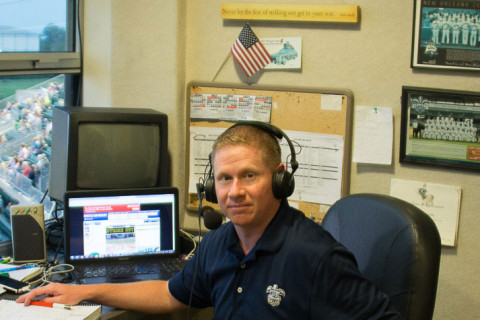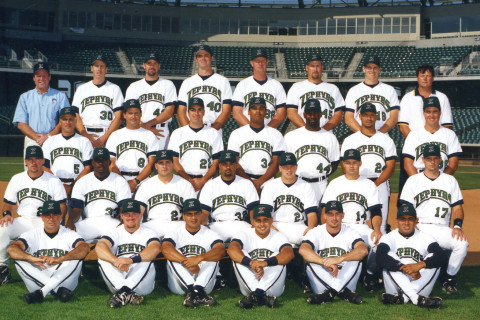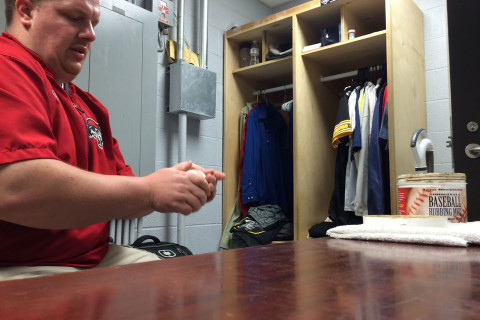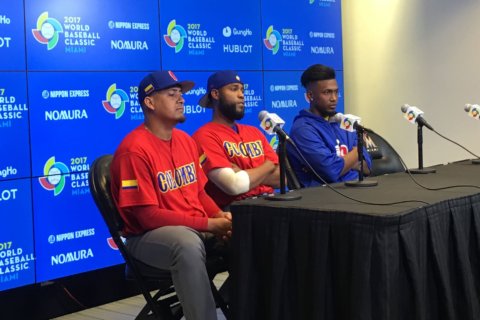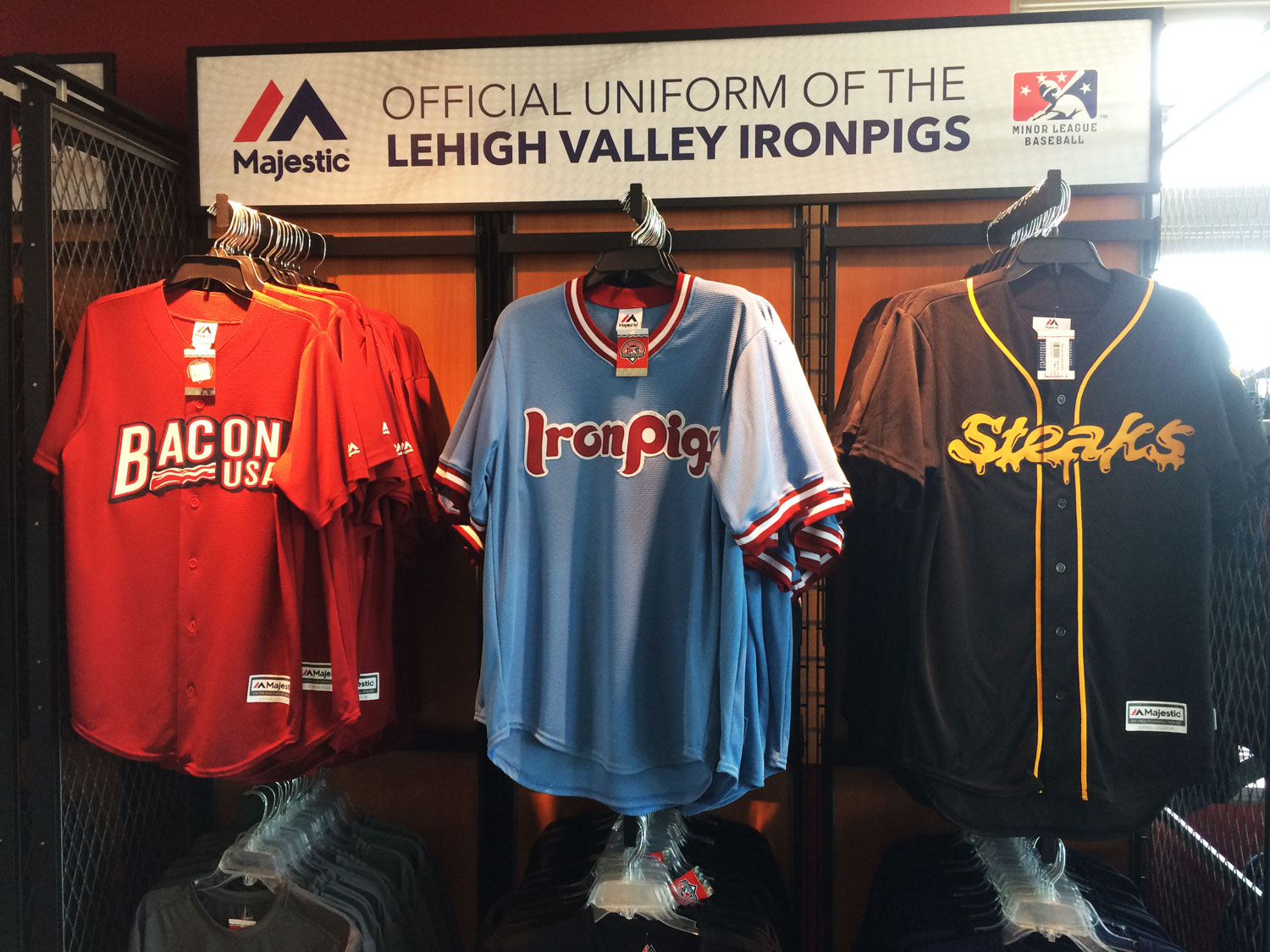
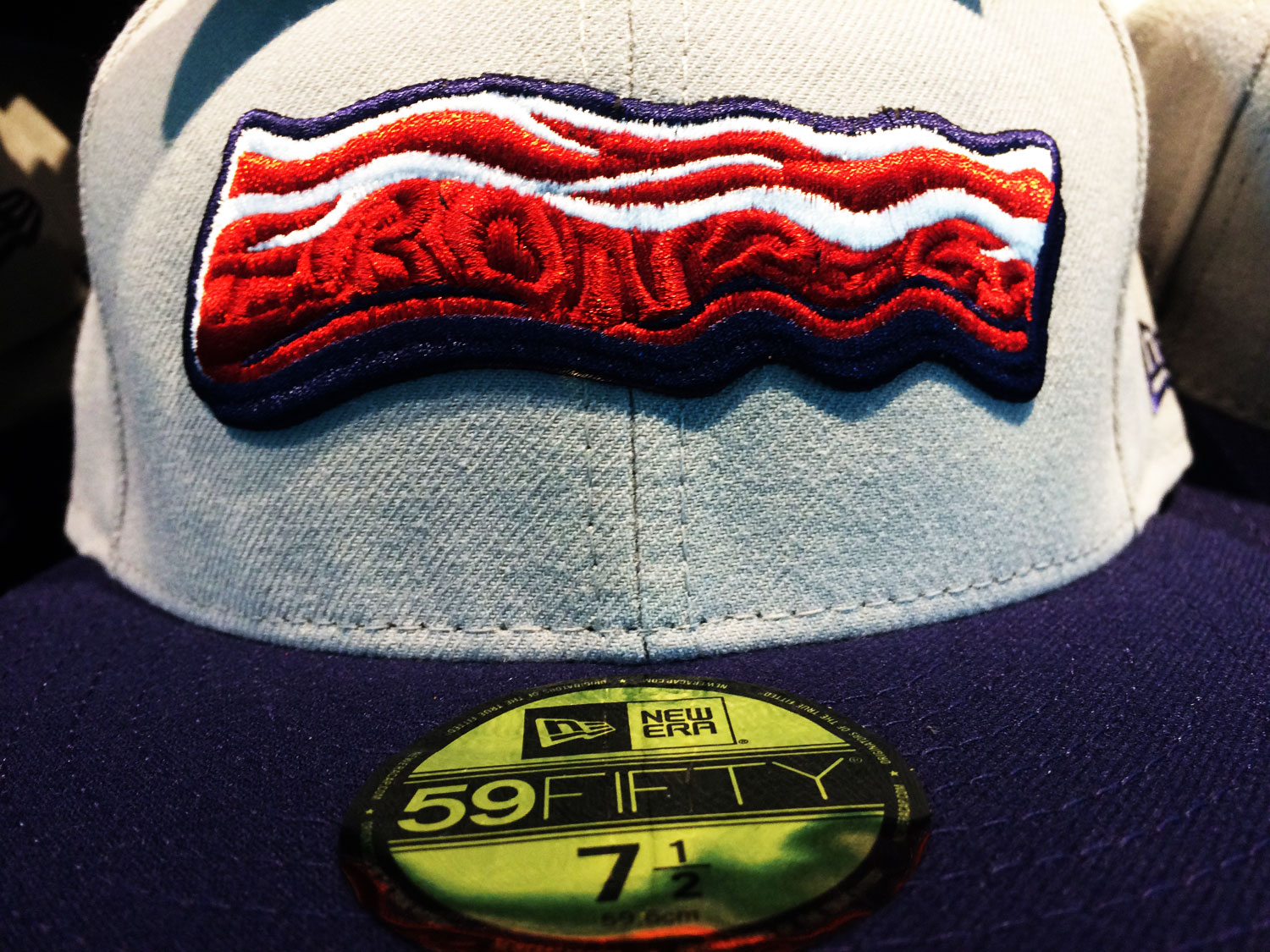
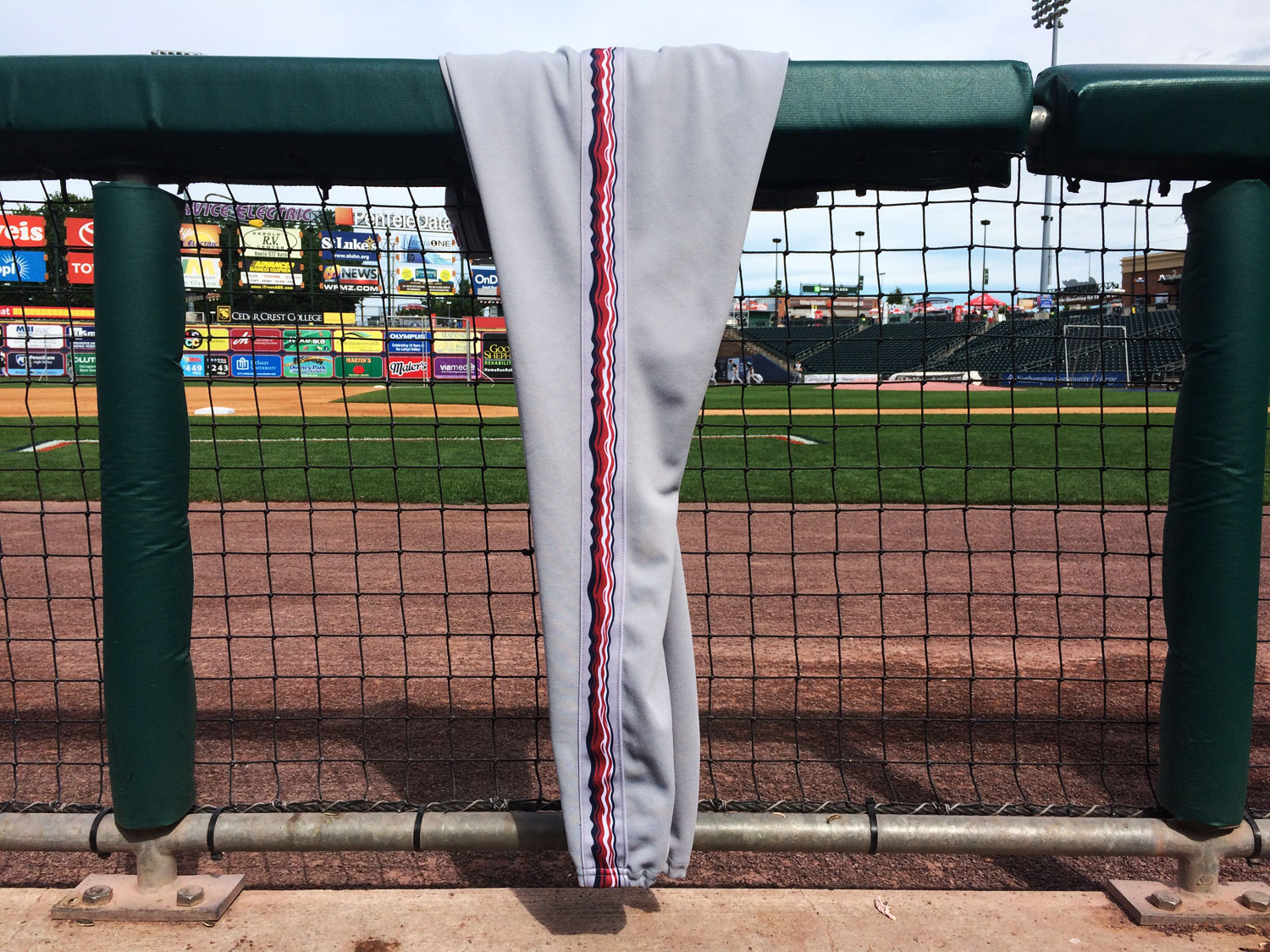
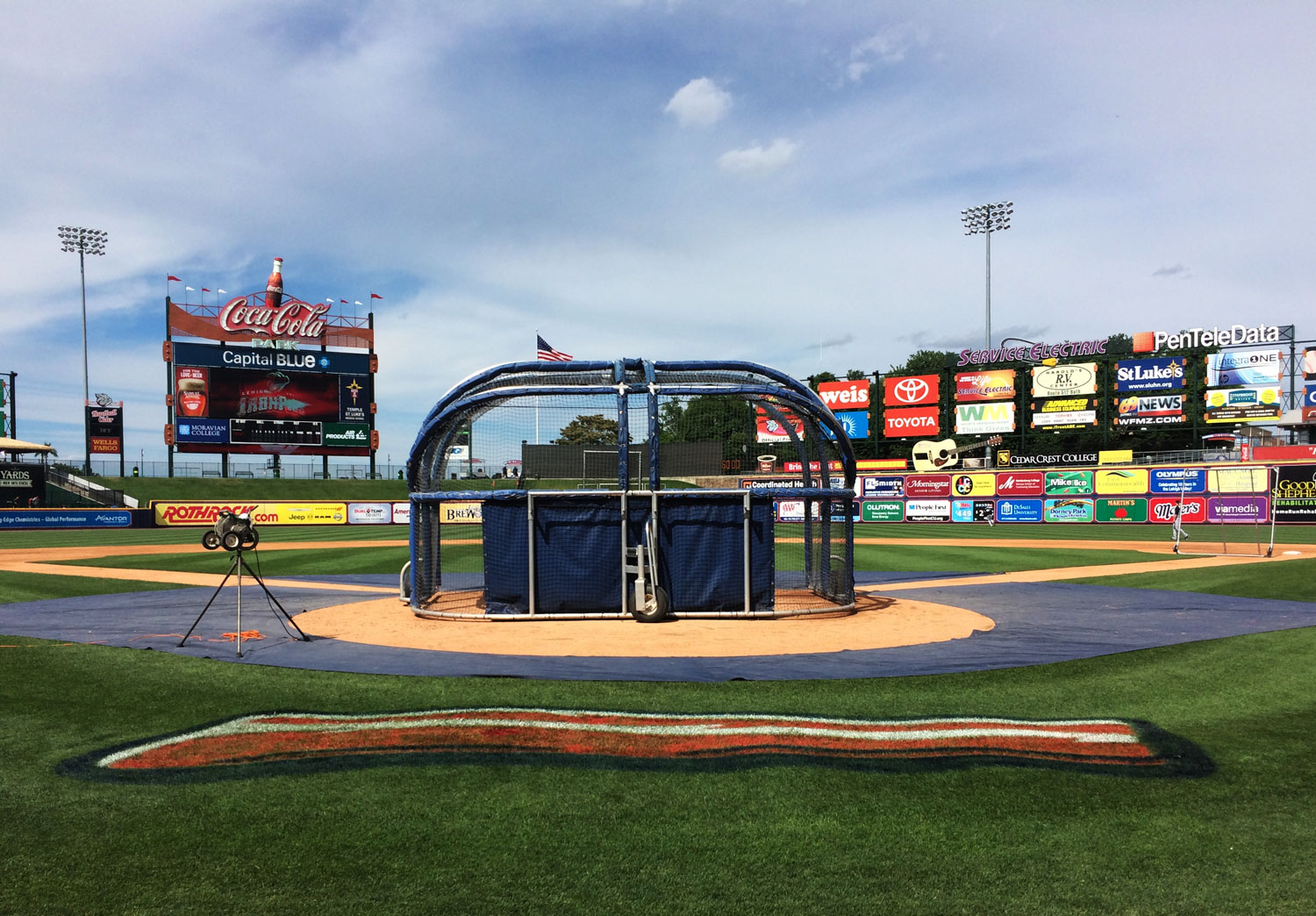
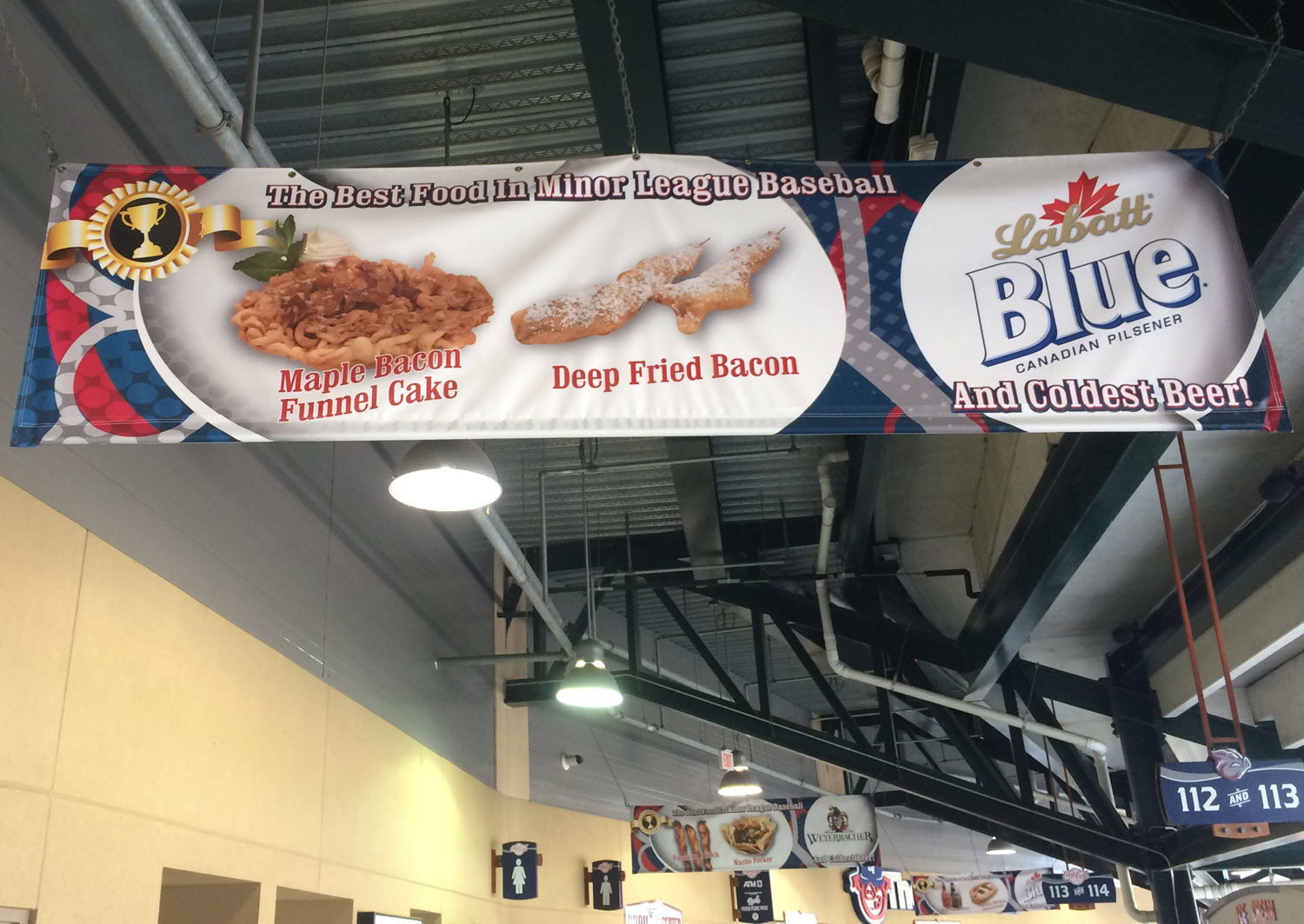
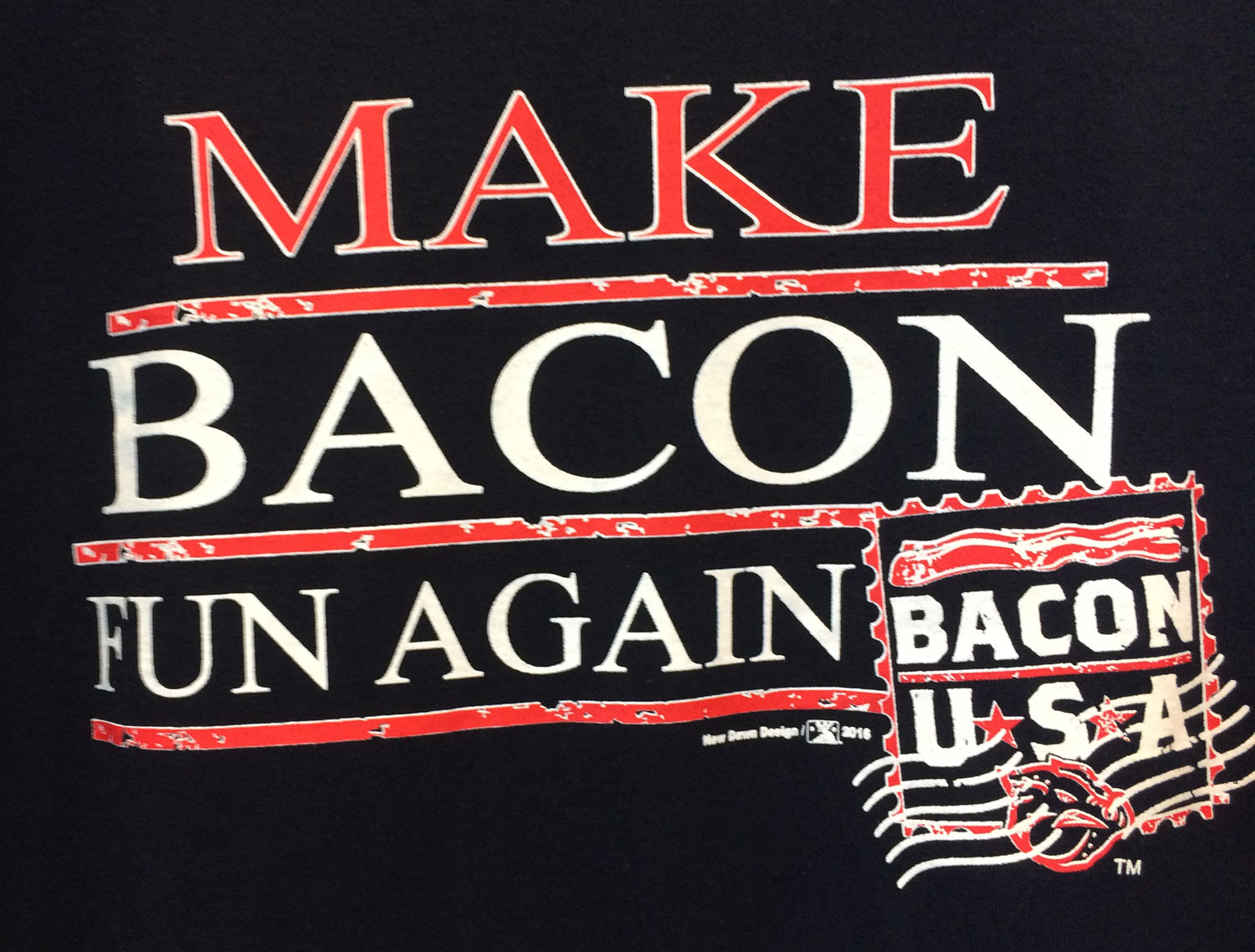
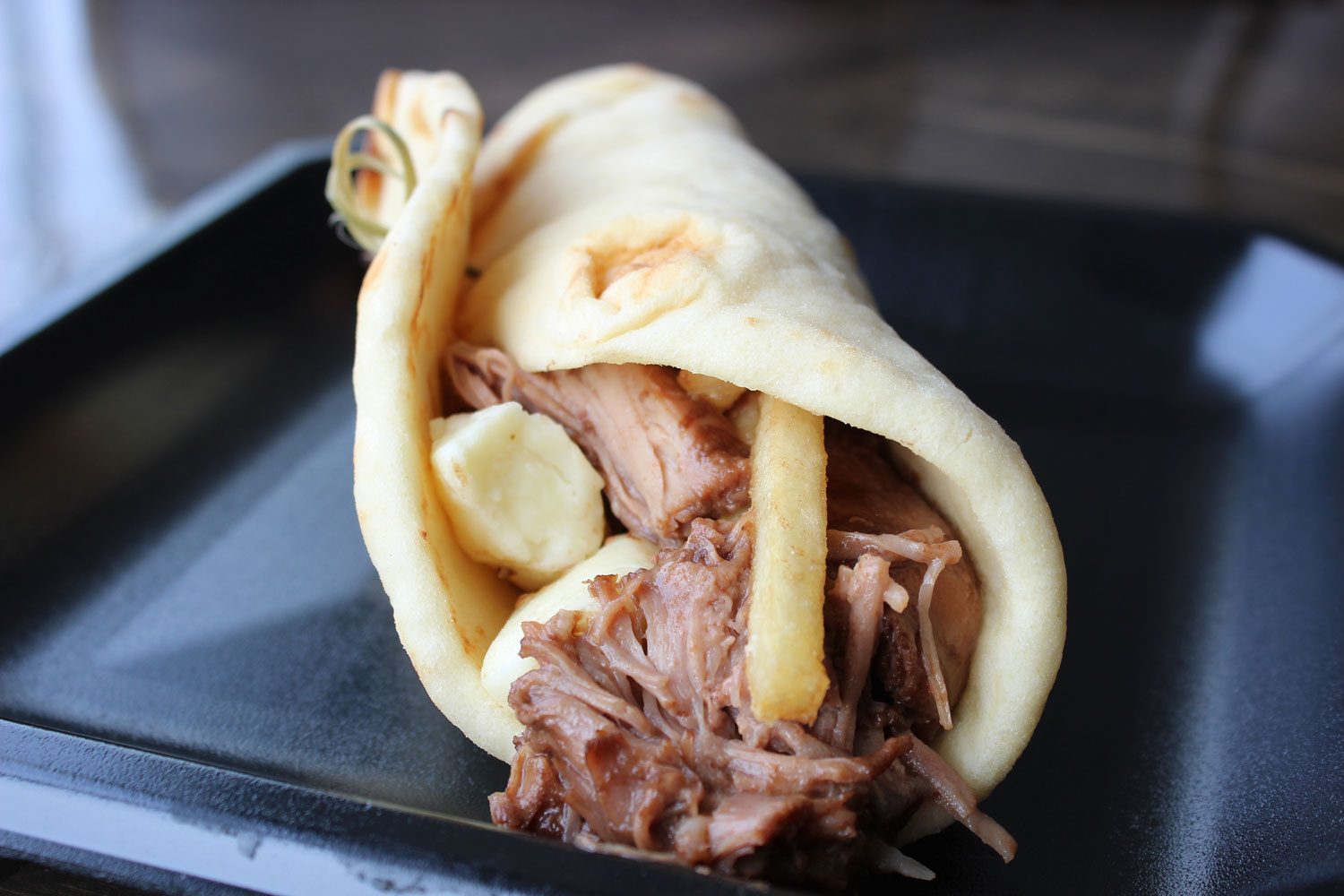
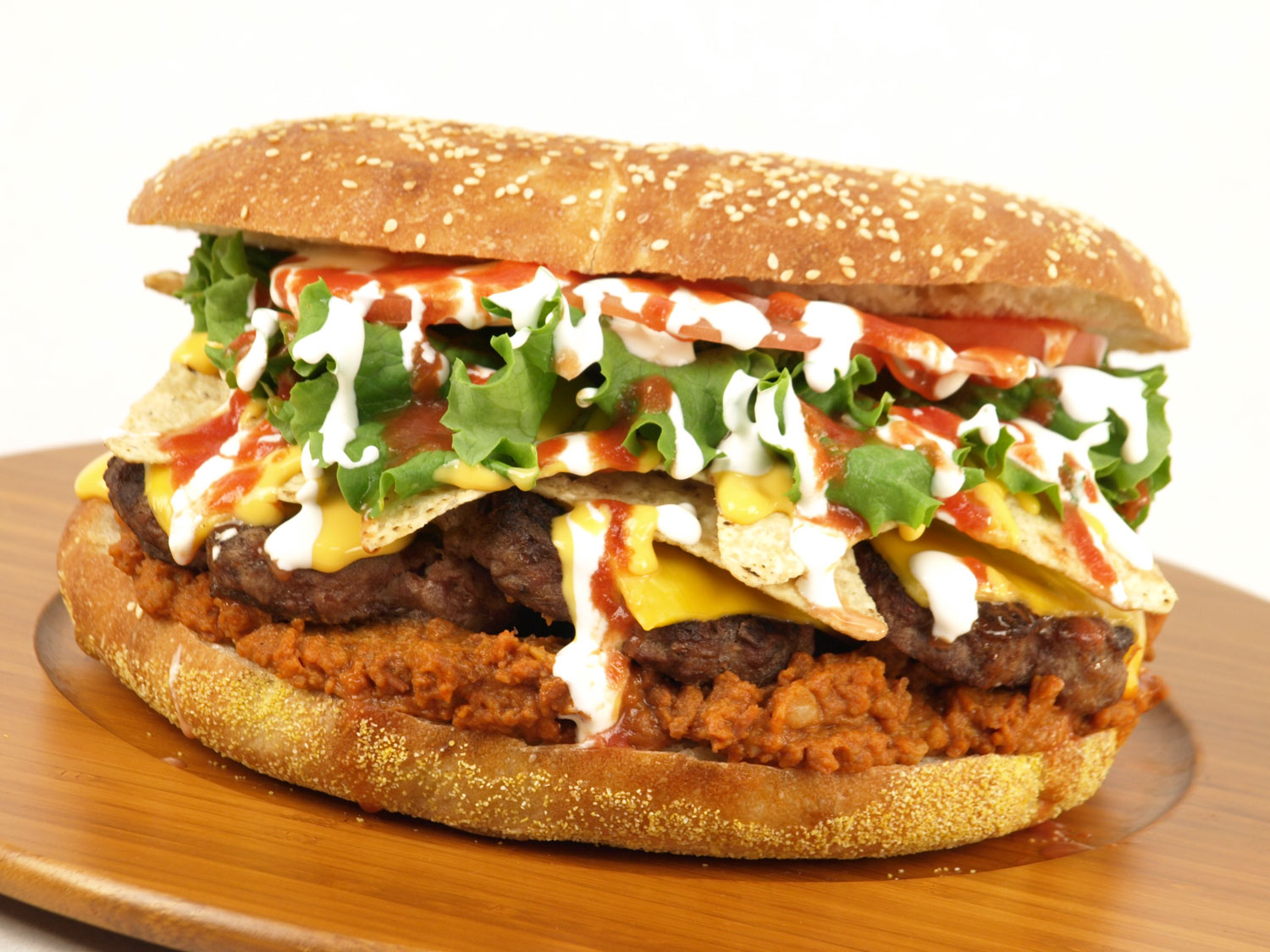
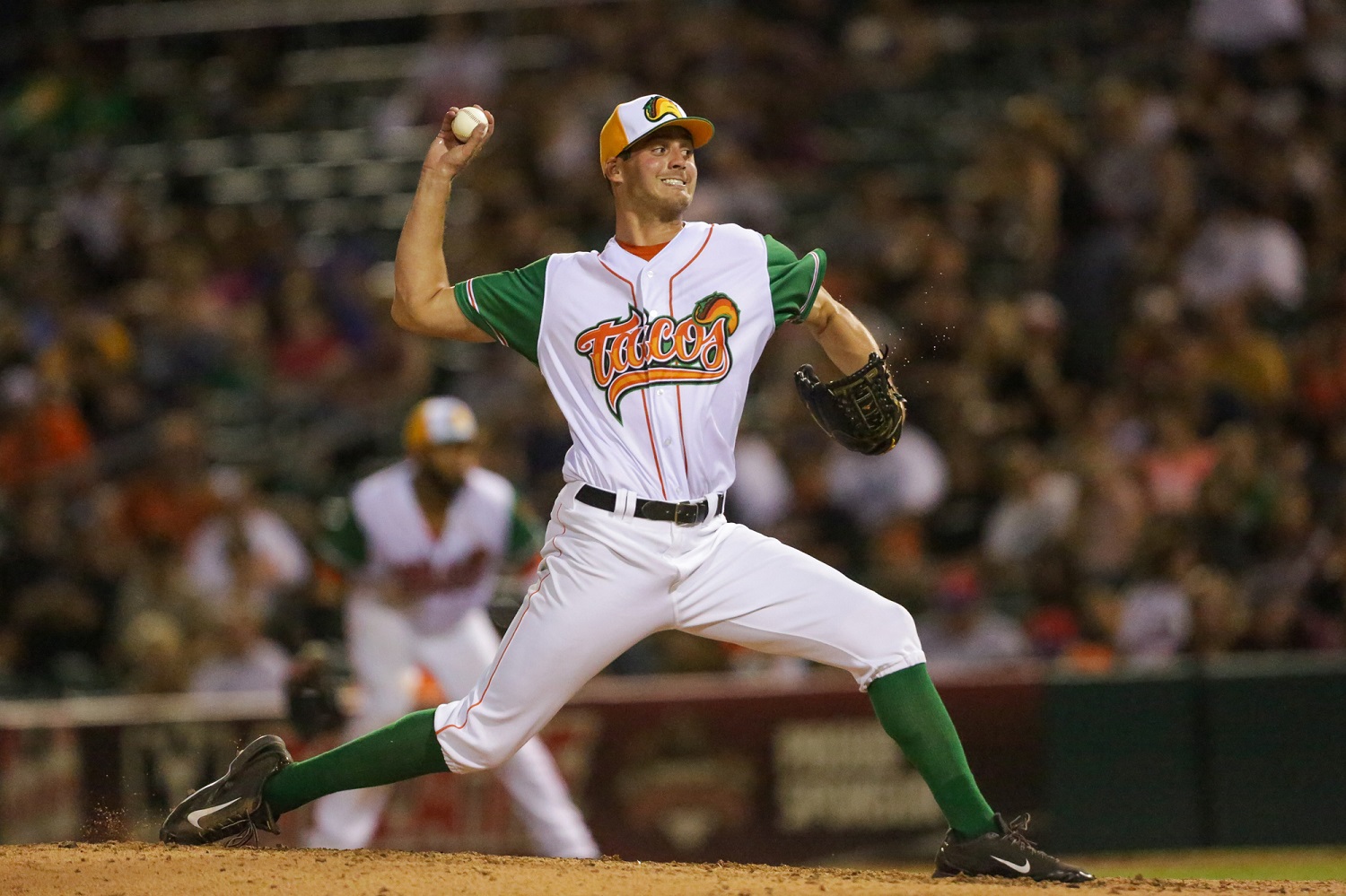
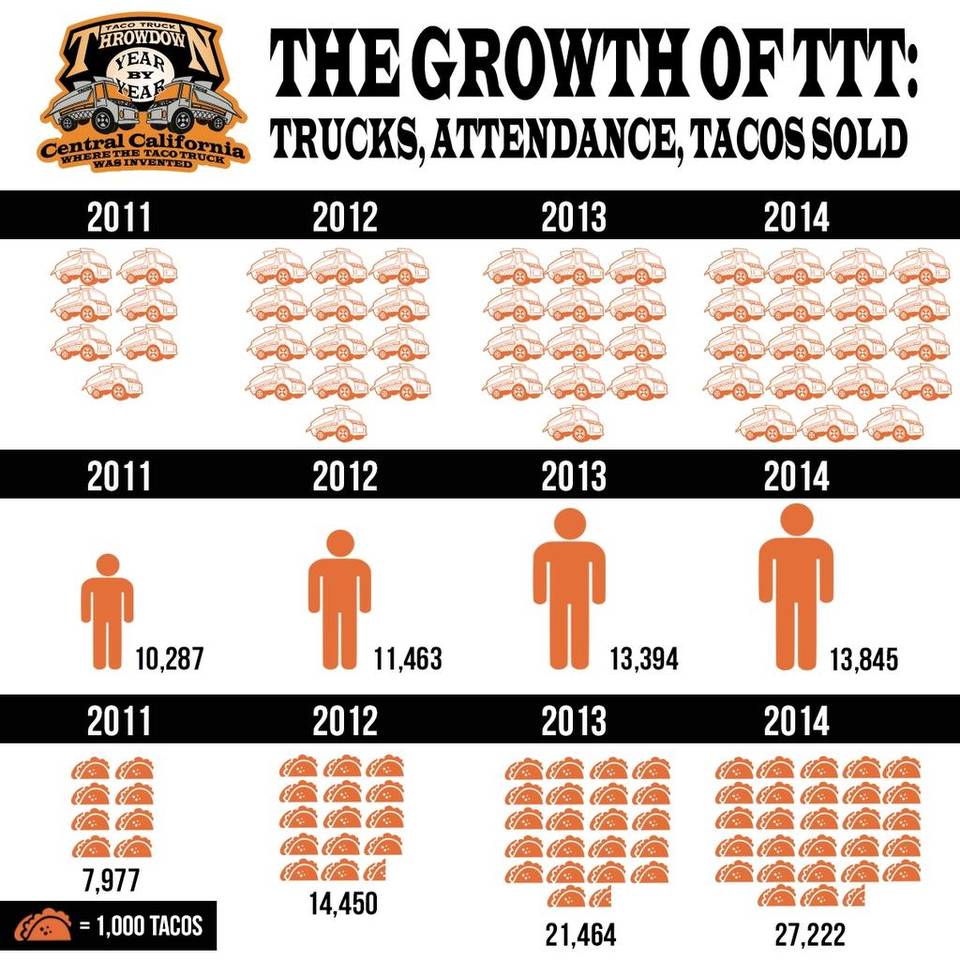
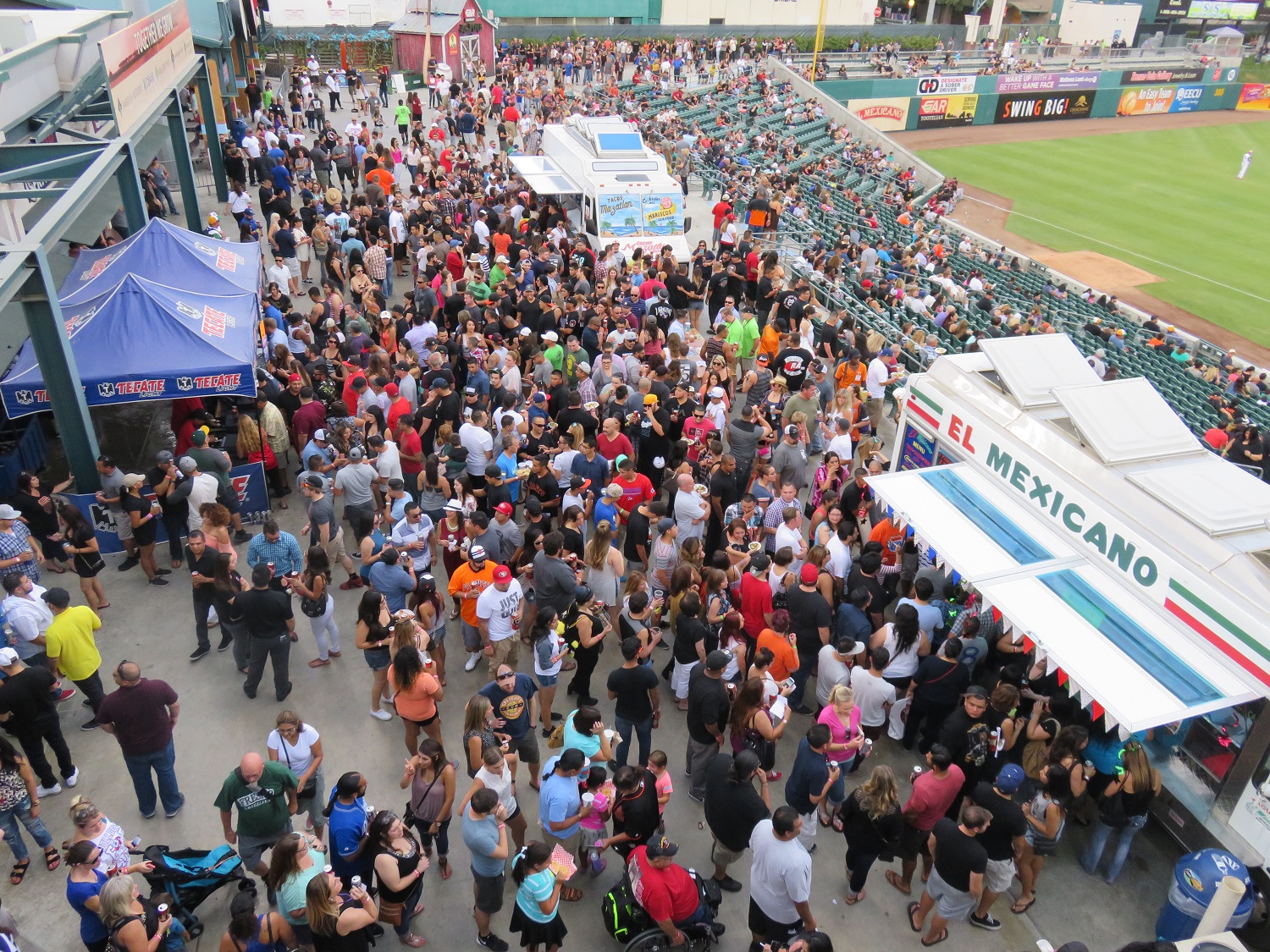
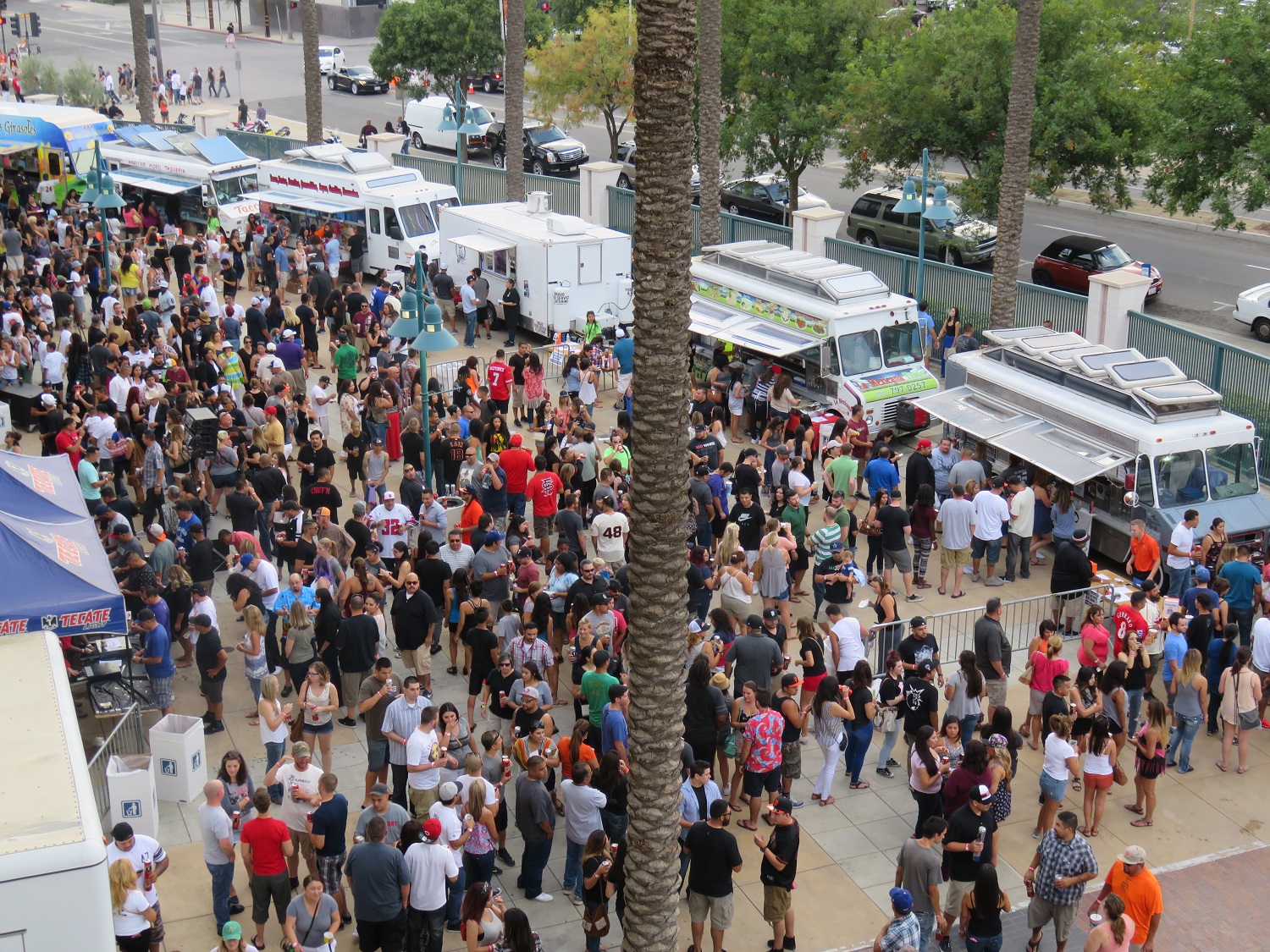
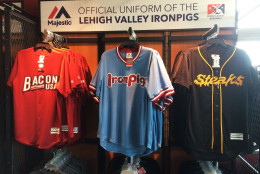
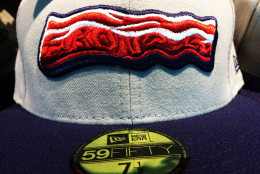
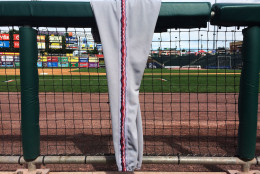
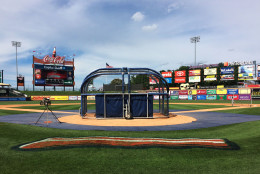
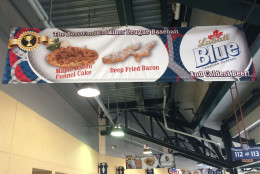
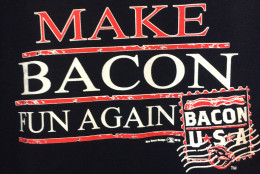
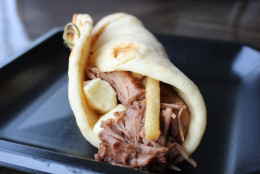
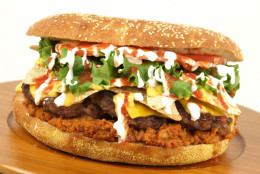

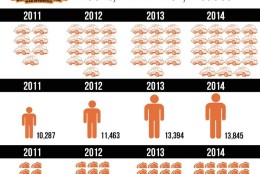
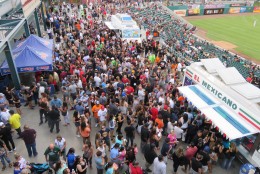
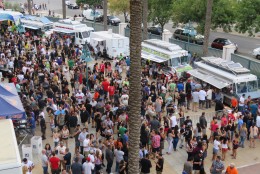
This is the third in the five-part WTOP special report Life on the Farm, an inside look at the not-so-glamorous world of Minor League Baseball. A new story will be published every Friday in July.
ALLENTOWN, Pa. — Many Americans and casual baseball fans know “Moneyball” as a film starring Brad Pitt that has something to do with the Oakland A’s and winning games on a limited payroll. But the defining concept of “Moneyball” isn’t any one thing, like valuing players based on their on-base percentage, but rather about finding a market inefficiency and exploiting it. It’s about seeing value in something that nobody else has seen yet and running with it.
The minor leagues don’t control their on-field product. The players are sent to them by the big league clubs with which they affiliate. Minor league front offices don’t control who is on the roster, when they are moved to other levels of the farm system, who leads off, who plays center field. They only control what happens around these players and how the rest of the experience is perceived by the fans. That’s a big reason why, while the big league teams climb over themselves in an ever-escalating arms race to squeeze every ounce of performance out of their players through better training or nutrition, minor league teams are engaged in a full blown food war.
It began with the introduction of outrageous food items at the concession stands. Now, in the age of food trucks and Instagram, it has taken off into something else entirely, infiltrating all the way down onto the playing field itself.
You can trace the origins back more than a decade, with the West Michigan Whitecaps staking claim as one of the pioneers. The High-A affiliate of the Detroit Tigers are located in Comstock Park, Michigan, just north of Grand Rapids, about 20 miles east of the shores of Lake Michigan, along the same parallel as Milwaukee.
The Whitecaps have been around since 1994, and have the advantage of running their own concession brand that is tied with a local company, rather than a national one. That has allowed them to try out new food ideas each season, and they finally broke through onto the national scene in 2009 with the Fifth Third Burger, named after the title sponsor of the ballpark.
With five third-pound beef patties, lettuce, two types of cheese, chips and chili on an eight-inch bun, it’s a five-pound, 5,000-calorie monstrosity. The Whitecaps had tried healthy food options the year before, which had done do poorly that they took a venture in the complete opposite direction, only to find themselves getting more attention than ever before.
Now, the team lets fans submit options before the season, and sorts through hundreds each year before settling on finalists, which are then put to a vote. The winning item, like this year’s Dutch Love (pot roast, turkey gravy, cheese curds and French fries on a pita) is served all season long at the ballpark. As the contest has evolved, the priority has gone from shock value to something the average fan is likely to enjoy.
“We find that fans are going more for taste now,” said Mickey Graham, Whitecaps director of marketing and media relations, who has been with the team for 16 years. “Something they can’t necessarily get at home, as opposed to, ‘Can I get a T-shirt for this thing.’”
In the frigid winter months, as fans dream of spring, they don’t ask Graham about what’s going to be happening on the baseball field or who the hot prospects will be coming through town. They ask about the next crop of concessions.
“We don’t get, ‘Hey, who’s going to be on the team this year,’” Graham said. “It’s, ‘What’s the new food item? What are you guys doing this year?’ It’s what our fans look forward to.”
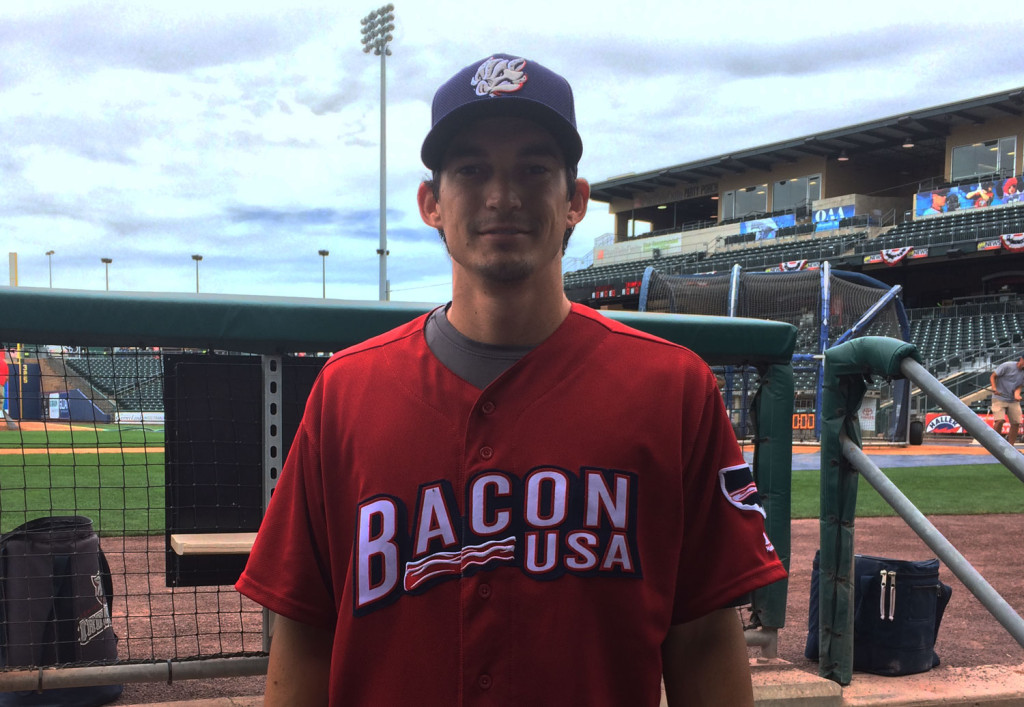
To the field
Anthony Vasquez has played for 10 different teams across his minor league career, from Pulaski, Virginia, to Tacoma, Washington. He’s been a LumberKing, a Diamond Jaxx and a Baysox. And now, he’s been bacon.
“I’ve been around a while, I’ve seen it all,” he said before a recent game. “Nothing really surprises me too much these days.”
Now a member of the Philadelphia Phillies Triple-A affiliate Lehigh Valley IronPigs, he’s got “Bacon USA” on the front of his jersey, and a long strip of bacon running down the outseam of his pant leg instead of piping. It’s the uniform the IronPigs will wear for every Saturday home game this season.
“I think it’s just part of the uniform, part of the mascot,” Vasquez said. “I think they do a good job of mixing the jersey with the crowd, kind of getting props and food involved to unite everybody.”
Some players have even indulged in some of the bacon-related concessions around the ballpark. That doesn’t mean they’re all thrilled to be sporting fried pork fat on their jerseys, but they seem to understand the appeal.
“I think the overall consensus, to be honest, would be to prefer to look as professional as possible and not like a piece of bacon running across the field like a cartoon,” said Vasquez. “But once you go out here and play, it’s really the last thing on your mind.”
The IronPigs — who were rebranded in 2008 after moving to Allentown from Ottawa — were one of the first minor league teams to go in a completely different direction with their name. It came as something of a shock, especially given the success the Philadelphia Double-A affiliate down the road in Reading had with Fightin’ Phils. An homage to pig iron, a derivative of the steelmaking process, the name accomplished the dual purpose of tying itself to local history while also being entirely new and different. But the pig itself opened up another realm of possibilities.
“The pig has always been more of the fun, goofy, unique side,” said Kurt Landes, president and general manager of the IronPigs, who has been in Allentown since day one. “We’ve always had some pork, bacon items at the ballpark.”
But the team started to kick around what else they could do with bacon, just as the food started taking off in American cooking and popular culture. What if, they thought, we actually incorporated it into the hats? There had been theme jerseys of all ilk across minor league baseball, why not food?
“The bacon idea grew on us,” Landes said, and in 2014 he and his team made the leap of putting it on their hats. “We thought we might have something, and it turned out we did.”
The Montgomery Biscuits were the only team actually named after a food, and their merchandise always sold well: the cartoonish biscuit with a pad of butter for a tongue making for a head-turning logo. But bringing food onto caps, as Lehigh Valley did with bacon, was a first.
“It’s right up the alley of minor league baseball,” said Landes. “It’s fun, corny, unique. You kind of make fun of yourself, you have to be lighthearted. And it’s bacon. I mean, there’s nothing not to like about bacon.”

Changing the name
3,000 miles away, another promotion had found its own unique connection with its fans and was ready to push food to a new frontier within the game. The Fresno Grizzlies’ Taco Truck Throwdown was the brainchild of Grizzlies director of marketing Sam Hansen and Yahoo! Sports Big League Stew editor Mike Osegueda — known as Mike Oz — who then worked for the Fresno Bee, first executed back in 2011.
“We didn’t know what kind of response we’d get,” Oz said. “There were so many people there, we were like, we can’t do that. We need more than seven trucks.”
What began as a crazy idea and seven trucks has grown to a crowd of nearly 17,000 (for a 12,500 seat ballpark) and 25 trucks slinging thousands and thousands of tacos. Heading into the 2015 event, Hansen had a crazy idea: what if we not only had the players wear taco jerseys and hats for the night, but actually became the tacos?
“We asked the league if we could change our name for the day,” he said. “We figured the worst they could do was say no.”
And so, the Fresno Tacos took the field last August.
The promotion drew national attention and was so popular that the Grizzlies decided to add the Tacos jerseys as an official alternate uniform this season. They play in them every Tuesday home game for, yes, Taco Tuesdays.
“It was just going to be for the one night, and then it was so popular,” said Hansen. “The thing that really made us decide to make tacos our alter ego, was that it really connected with the people of Fresno. It gave people a point of pride.”
The original idea for the Throwdown was to highlight the differences in the various trucks around California’s central valley — where they have served farmworkers for decades — while honoring their shared heritage, celebrating both their history and present impact. Each week this year, the team features one of the core trucks that has been a part of all five Throwdowns, telling the story of what region of Mexico they draw from, how long they have been in business, and where they operate.
Hansen believes that local tie was key to the community’s buy-in and excitement about the team.
“We showed them a mirror. We showed them this wasn’t just some community outreach, but that we were part of the community,” he said.
The taco phenomenon has expanded beyond the ballpark in Fresno, where now local gift shops and even the airport have contacted the team, wanting to carry merchandise.
“All of the sudden, it becomes not just a great device to get people in the stadium, it becomes a device for people to do your marketing for you,” said Oz.
And just as bacon’s overall popularity boosted the IronPigs, the rise in food trucks helped buoy the Throwdown. The Grizzlies even launched their own food truck this year. But if local non-taco food trucks want to compete in the Throwdown, they have to make tacos. Those are the rules.

What’s next?
“I think this promotion works in every city,” said Hansen. “We were excited to see Lehigh do Cheesesteaks, Brooklyn do Coney dogs. Each region has a food item that people connect with.”
And others are catching on.
“Minor League Baseball told me that there’s a record this year for alternate caps changes, and a lot are going to be food identification,” said Landes. “I think a quarter of the teams in baseball (40 of 160 affiliated MiLB clubs) are going to have some kind of logo change. That’s phenomenal.”
“It’s a very sharing industry,” Graham said. “When something works one place, you say, hey, let’s see if we can make that work here.”
That means there may very well be a local food angle coming to a ballpark near you, as soon as this season. Such is the nature of the business, where one good idea spurs the next. The key is finding what resonates in your market, with your fans.
“There’s probably going to be more people digging into, what is it about where we live that’s special?” said Oz. “Maybe it’s food, maybe it’s something else.”
Whatever it is, teams will probably find it. With annual MiLBY awards celebrating many categories — including best promotion — given out each year, every team is well aware of the best ideas being executed by their peers around the country.
“I think it’s cool to have the idea of rivalries built around food in the minor leagues,” said Oz. “It’s kind of hard to build rivalries with the way affiliations change, players come and go, and you’re not going to have ‘X’ pitcher versus ‘X’ hitter going against each other for so many years.”
The friendly competition does spur those like Landes and his staff to constantly look for new sources of innovation. While a major league team might invest in new medical staff or extra coaches, Lehigh Valley maximizes their idea-formation process through a three-day staff retreat in September, after the minor league season wraps up. Landes finds the off-campus setting often provides the beginnings for what turn into some of the biggest and most successful campaigns.
“There are things that will come out of our staff having a good time for three days together off-site that would otherwise never come about,” he said.
But Landes looks at the challenge much the same way Hansen does, as a constant attempt to connect better with his own fans.
“You can’t let yourself become focused on just trying to outdo each other promotionally because you want to, but things that make sense in your market and further your goals.”
In West Michigan, that means letting the fans dictate the menu, allowing changing tastes to sway the menu. In Fresno, it means more off-site events, getting into the community with their food truck, which helps them spur grass roots efforts. For Lehigh Valley, it means a single-day name change to the Cheesesteaks as part of a Salute to Philadelphia Night, where fans voted between “Wit” or “Witout” to determine whether the cap would have onions on it.
But next year is always on the horizon, and with it the itch to push the boundary further.
“Bacon USA continues to morph into what we do next,” said Landes. “To the point where people ask us, ‘What’s next?’ so often that that could be, eventually, our slogan: What’s next?”
Part I: The road well-traveled
Part V: The unwitting translator

